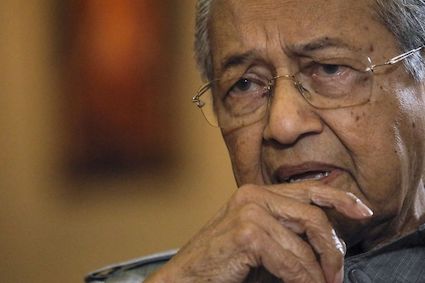Plea bargaining to cut sentences is common, say lawyers

(FMT) – Several lawyers have disputed the claim by former prime minister Dr Mahathir Mohamad that Malaysia does not adopt the concept of plea bargains, saying they are in fact a common practice in the country.
Several criminal lawyers who spoke to FMT said it was a long-standing practice for those accused of criminal offences to seek less severe sentences or a reduced charge by writing to the deputy public prosecutor.
Under amendments made in 2012, the Criminal Procedure Code provides for a pre-trial conference at which the accused and prosecution may discuss a plea bargain. The code in fact sets out procedures for an accused to make an application to the court for plea bargaining.
Plea bargains are limited by the severity of the sentence and the offence with which the accused has been charged. The law does not provide for plea bargaining for an acquittal or a discharge, whether conditional or unconditional.
The subject of plea bargains came to public attention this month when Riza Aziz, the stepson of former prime minister Najib Razak, was released on a conditional discharge from money laundering charges over US$248 million (RM1.08 billion) in funds linked to 1MDB.
The prosecution applied to the court for a discharge not amounting to an acquittal on the basis that he would be making restitution to the government by returning the funds.
Lawyers who spoke to FMT said the discharge was not a plea bargain, but one that lay within the powers of the attorney-general who has sole discretion over whether to prosecute, and which had come about from representations made to the prosecution by Riza’s counsel.
They said it is common practice for the defence to make written representations to seek a less severe penalty or sentence for an offence.
Lawyer Hasif Hasan said counsel would usually write to the deputy public prosecutor (DPP) in charge, seeking to review or drop charges.
“We will state the facts, evidence and arguments. If the DPPs agree with us, then the accused will get a lesser charge.
“Another option is to fill up Form 28A about our client’s intention for a plea bargain and inform the judge and DPPs about it.”
Hasif said an accused person cannot seek a discharge not amounting to acquittal. “In the Riza Aziz situation, his counsel wrote to the prosecution to review his charges,” he added.
Mahathir had criticised the decision to discharge Riza, saying it could set a precedent where those who steal money can escape punishment by returning it.
He also said Malaysia does not adopt the plea bargain concept, “in which a criminal suspect would offer to help the government in return for some concession to his advantage”.
However, Hasif said under a conditional discharge, the attorney-general could file charges again if conditions were not met.
Another lawyer, Haijan Omar, said the plea bargain process was placed on record under the amended Criminal Procedure Code.
“Everything is transparent and on record. It ought to be in the appeal record if the sentence is in dispute,” he said, adding that the prosecution or defence can still appeal against the sentence if they are not satisfied.
Senior criminal lawyer Bala Mahesan said plea bargaining has been encouraged in order to lighten the workload of the judiciary and clear the backlog of cases.
He said, however, that a plea bargain should not be offered for all cases, especially not for those involving high-profile cases, such as the one involving Riza.

